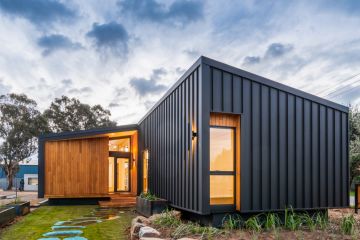How to find the property you want

Choosing a suburb and property
Embarking on your property journey without clear parameters is like sailing in a ship without anyone at the helm. Make a suburban checklist that will form the basis of your search and help you decide which areas to target. Consider the following features in choosing your suburbs:
- Proximity to your work, social network and family
- Access to amenities such as shops, schools, medical services and transport
- Access to your favourite leisure spots including parks, beaches, cultural centres, cafés and other entertainment areas
- Future developments and potential infrastructure changes or rezoning.
 Research property prices to find out where you can afford to buy. Use industry data to assess an area’s median prices, by suburb, postcode, street or property type. Having an idea of your property requirements will also be a big help. This includes:
Research property prices to find out where you can afford to buy. Use industry data to assess an area’s median prices, by suburb, postcode, street or property type. Having an idea of your property requirements will also be a big help. This includes:
- Property type – house, unit, studio or townhouse
- Property style – off-the-plan, new, specific architectural period (e.g. Federation, Art Deco, Mid-Century or industrial) or fixer-upper
- Number of bedrooms, bathrooms and parking spots
When an area was developed or experienced a resurgence in development, and its history of use – such as rural, industrial or residential – will determine the types of properties available.
Real estate search tools
A range of advanced property tools is now available to help you in your search, including mobile, online and print property listings and buying guides. You can also enlist the help of buyer agents, real estate agents and mortgage brokers.
- Mobile apps: the very nature of hunting for property means getting out on the road. By downloading a property app, your resources will always be on hand. Domain’s award-winning app provides tailored search functions, interactive maps, property photo galleries, agent details, inspection and auction times, and directions.
- Online: the convenience of jumping online at any time of the day or night to review the latest property listings is invaluable. Tailor your searches, save search results, shortlist properties, and access the latest market data based upon city, suburb, postcode or street.
- Print: by reviewing printed listings and guides you can obtain an instant overview of a particular market and gain greater insight into featured properties. Domain prints listings in over 200 metropolitan, regional and community newspapers.
- Real estate agents: along with perusing the local real estate agents’ windows, it is helpful to register your interest with a number of agents located in your target areas. They can search for properties on your behalf that fit your criteria, with the added benefit of being up on new properties coming onto the market.
- Buyer agents: these independent property experts locate and purchase real estate on a buyer’s behalf. This includes negotiating sales and bidding at auctions. This is particularly useful for those not confident in handling the sale process or who don’t have time to look for property themselves.
 Don’t forget your personal network. Let friends, family and colleagues know you are in the market for real estate, and your suburbs of interest – you never know where that next lead might come from!
Don’t forget your personal network. Let friends, family and colleagues know you are in the market for real estate, and your suburbs of interest – you never know where that next lead might come from!
When to compromise
As you progress along the real estate path your must-have property criteria will naturally evolve. The more inspections you undertake and the better you get to know an area, certain property and neighbourhood attributes will increase in importance, while others will fade into the background. Buying a house in less than perfect condition on your dream street may be worth it in the long run. Alternatively, you may need to spend a little more than you first thought. Just make sure the compromises you make are not purely emotional, and when it comes to finances, always obtain sound professional advice. If you are buying with a partner it is a good idea to research your joint legal obligations. This is not something to shy away from; it can take the awkwardness out of the financial and contractual negotiations when you find the ideal property. Continue reading the Complete Home Buyers’ Guide with: What you need to know about houses and units
We recommend
We thought you might like
States
Capital Cities
Capital Cities - Rentals
Popular Areas
Allhomes
More







